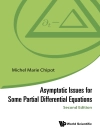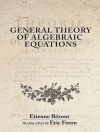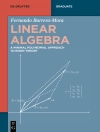This modern translation of Sophus Lie’s and Friedrich Engel’s “Theorie der Transformationsgruppen I” will allow readers to discover the striking conceptual clarity and remarkably systematic organizational thought of the original German text. Volume I presents a comprehensive introduction to the theory and is mainly directed towards the generalization of ideas drawn from the study of examples. The major part of the present volume offers an extremely clear translation of the lucid original. The first four chapters provide not only a translation, but also a contemporary approach, which will help present day readers to familiarize themselves with the concepts at the heart of the subject. The editor’s main objective was to encourage a renewed interest in the detailed classification of Lie algebras in dimensions 1, 2 and 3, and to offer access to Sophus Lie’s monumental Galois theory of continuous transformation groups, established at the end of the 19th Century. Lie groups are widespread in mathematics, playing a role in representation theory, algebraic geometry, Galois theory, the theory of partial differential equations and also in physics, for example in general relativity. This volume is of interest to researchers in Lie theory and exterior differential systems and also to historians of mathematics. The prerequisites are a basic knowledge of differential calculus, ordinary differential equations and differential geometry.
Содержание
Part I Modern Presentation.- 1 Three Principles of Thought Governing the Theory of Lie.- 2 Local Transformation Equations and Essential Parameters.- 3 Fundamental Differential Equations for Finite Continuous Transformation Groups.- 4 One-Term Groups and Ordinary Differential.- Part II English Translation.- 5 Complete Systems of Partial Differential Equations.- 7 Determination of All Systems of Equations Which Admit Given Infinitesimal Transformations.- 8 Complete Systems Which Admit All Transformations of a One-term Group.- 9 Characteristic Relationships Between the Infinitesimal Transformations of a Group.- 10 Systems of Partial Differential Equations the General Solution of Which Depends Only Upon a Finite Number of Arbitrary Constants.- 11 The Defining Equations for the Infinitesimal Transformations of a Group.- 12 Determination of All Subgroups of an r-term Group.- 13 Transitivity, Invariants.- 14 Determination of All Systems of Equations Which Admit a Given r-term Group.- 15 Invariant Families of Infinitesimal Transformations.- 16 The Adjoint Group.- 17 Composition and Isomorphism.- 18 Finite Groups, the Transformations of Which Form Discrete Continuous Families.- 19 Theory of the Similarity [AEHNLICHKEIT] of r-term Groups.- 20 Groups, the Transformations of Which Are Interchangeable With All Transformations of a Given Group.- 21 The Group of Parameters.- 22 The Determination of All r-term Groups.- 23 Invariant Families of Manifolds.- 24 Systatic and Asystatic Transformation Groups.- 25 Differential Invariants.- 26 The General Projective Group.- 27 Linear Homogeneous Groups.- 28 Approach [ANSATZ] towards the Determination of All Finite Continuous Groups of the n-times Extended Space.- 29 Characteristic Properties of the Groups Which are Equivalent to Certain Projective Groups.- Glossary of significantly used words.- Index./p>
Об авторе
Professor Joël Merker studied Mathematics and Philosophy at the Ecole Normale Supérieure in Paris where he received his Ph. D. in Mathematics (1996), followed by his habilitation in Mathematics (2006) and Ph. D. in Philosophy (2012). He was a CNRS researcher (1997-2010) and is currently Professor of Mathematics at Paris-Sud-Orsay University.












